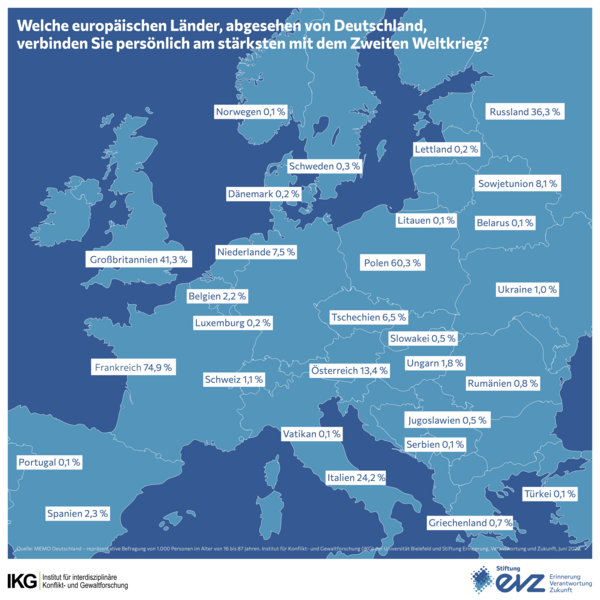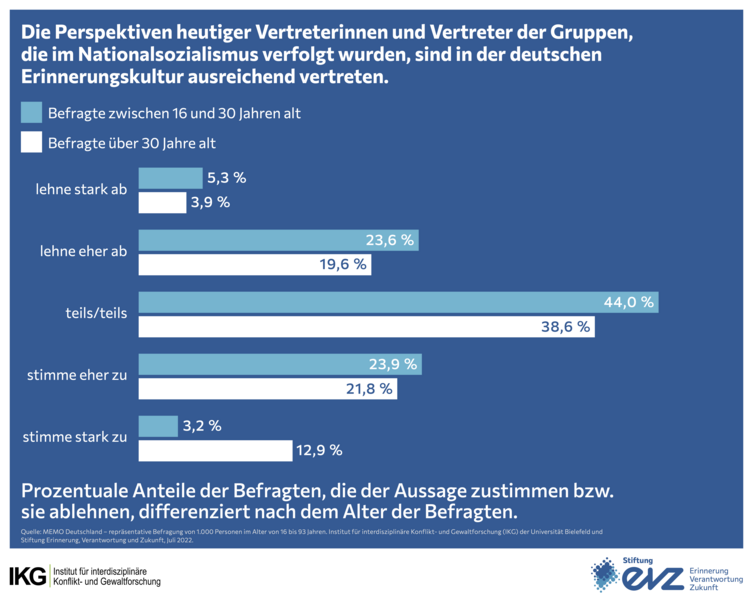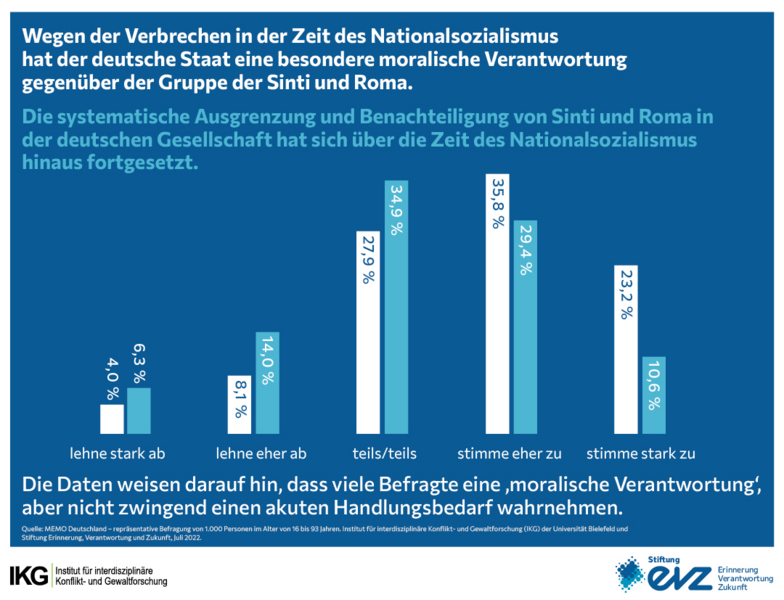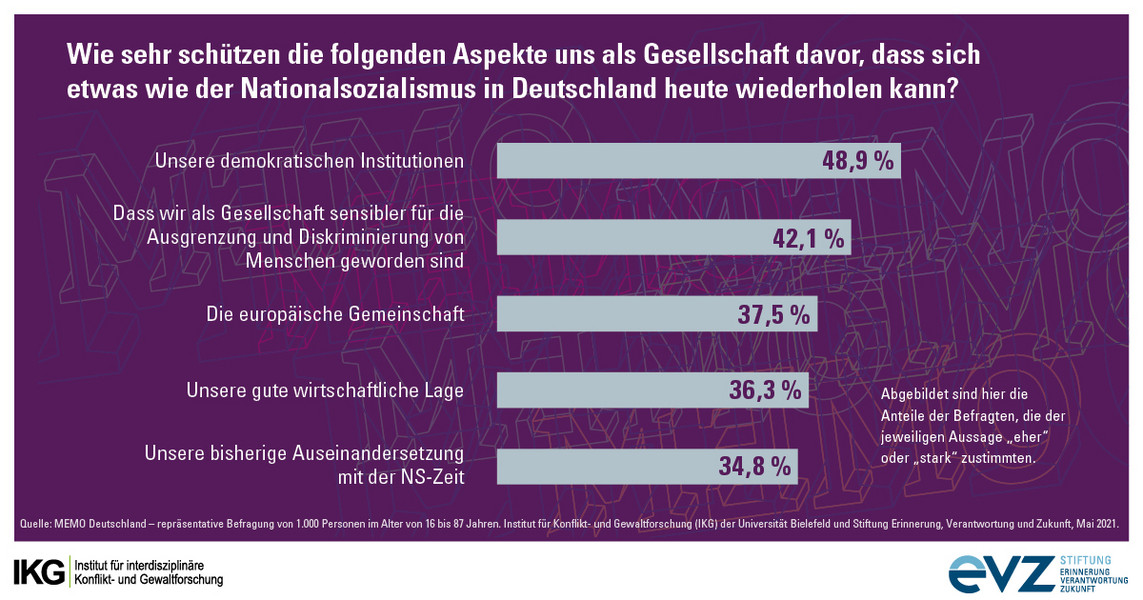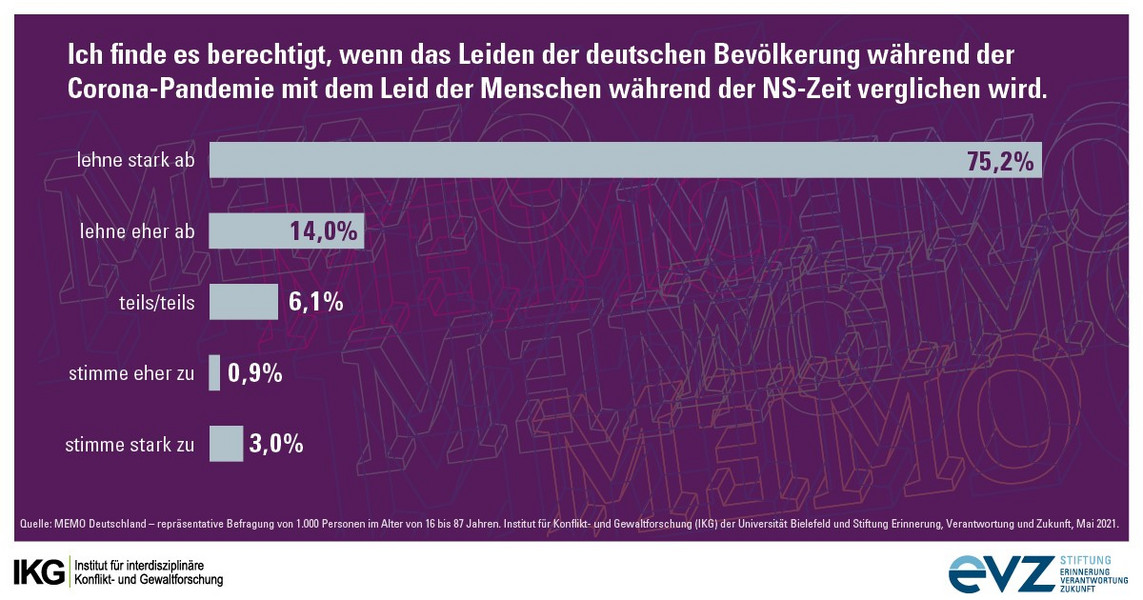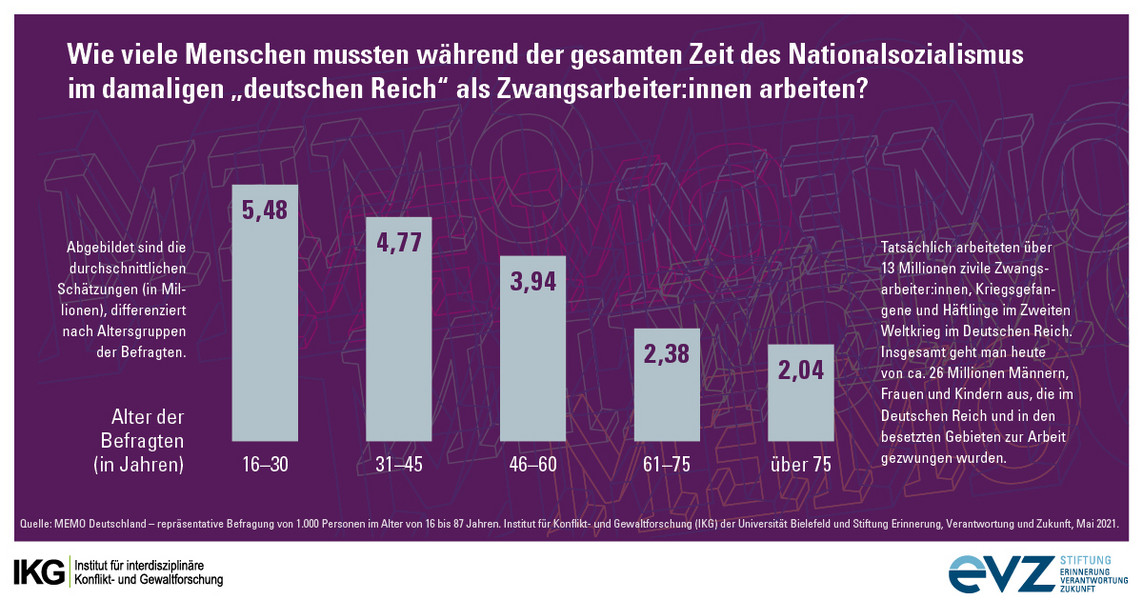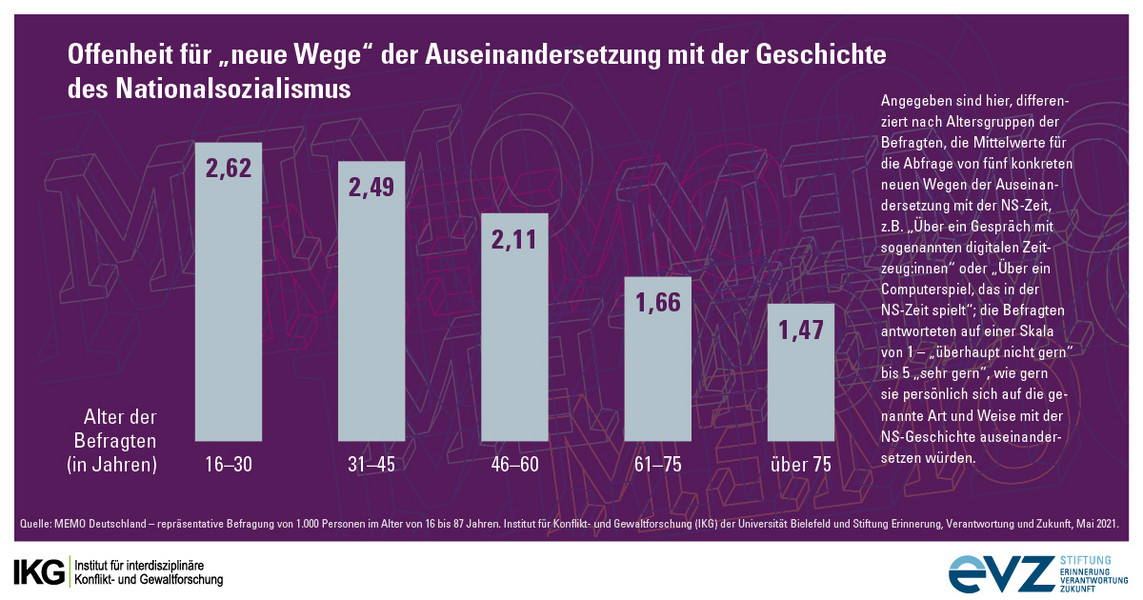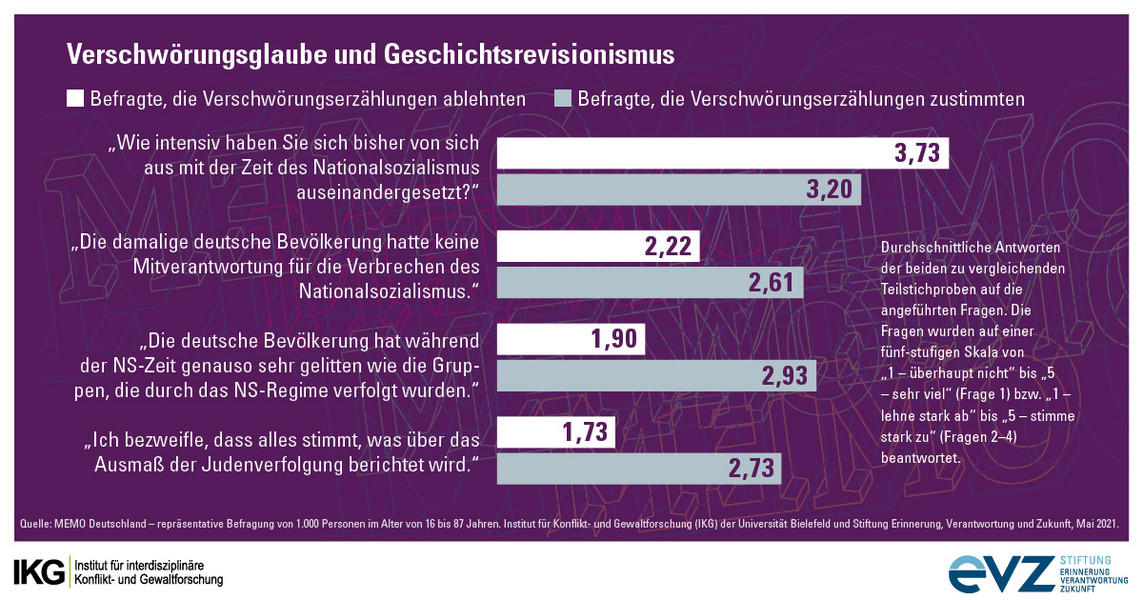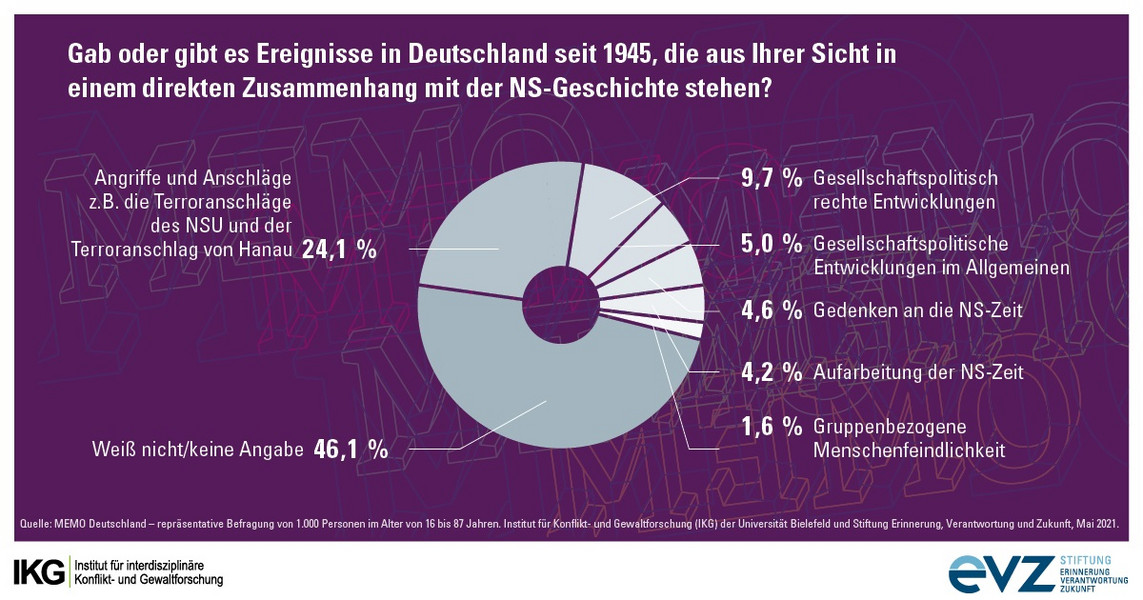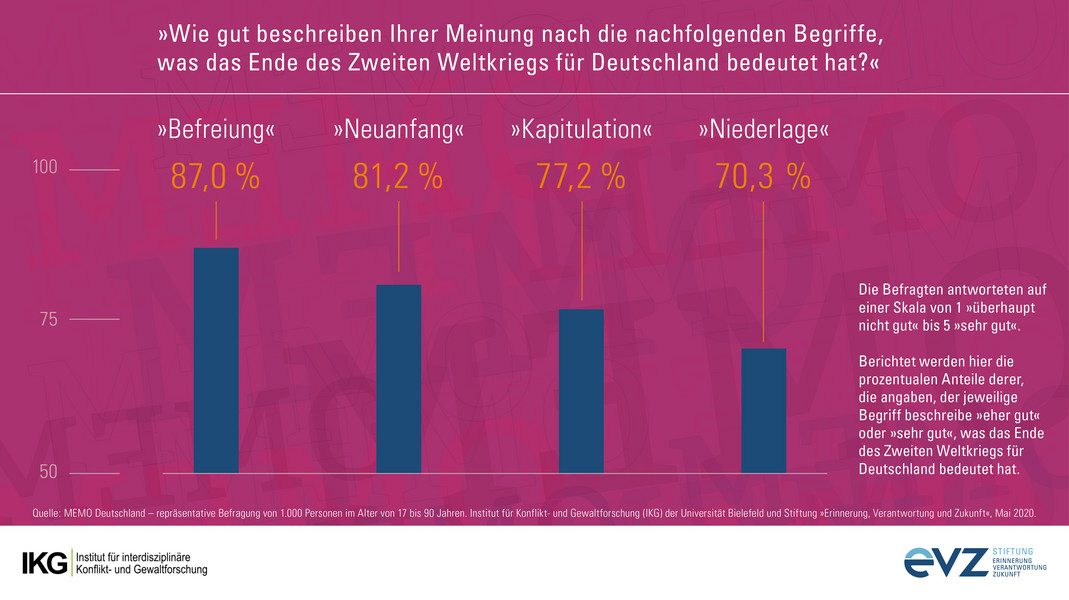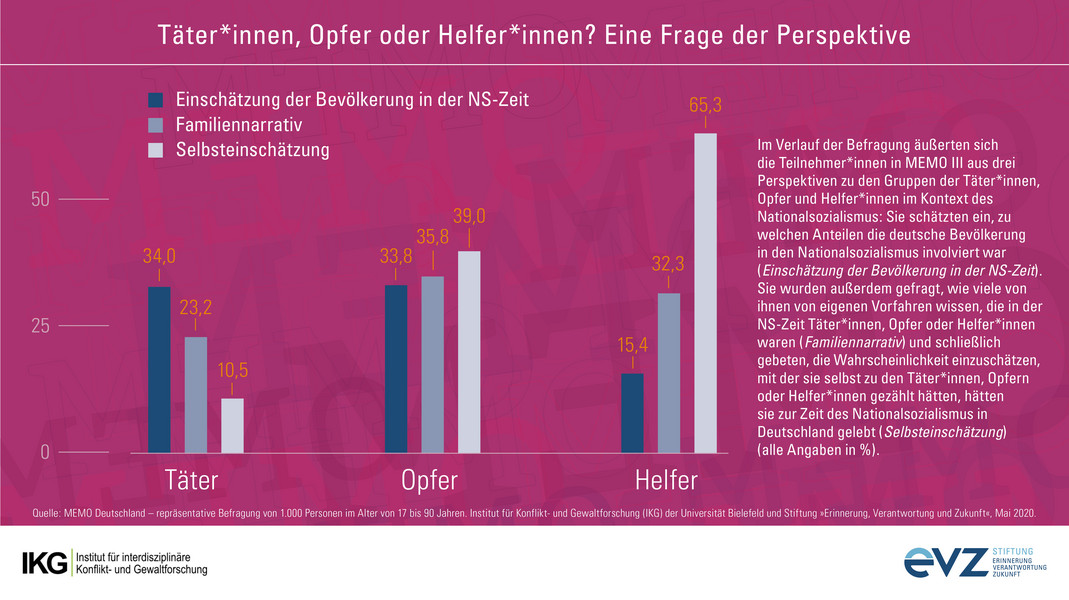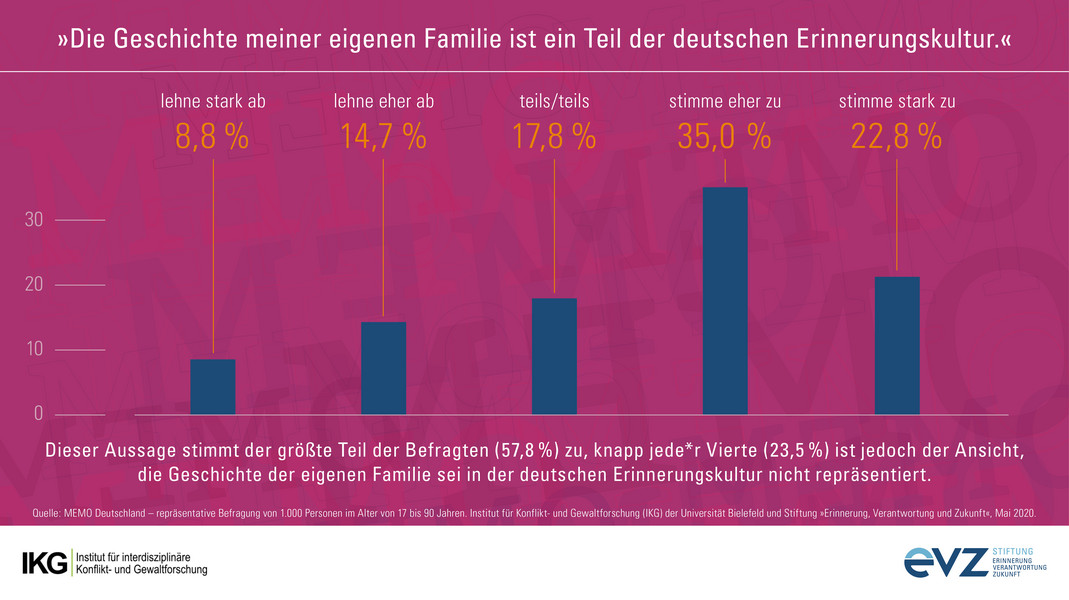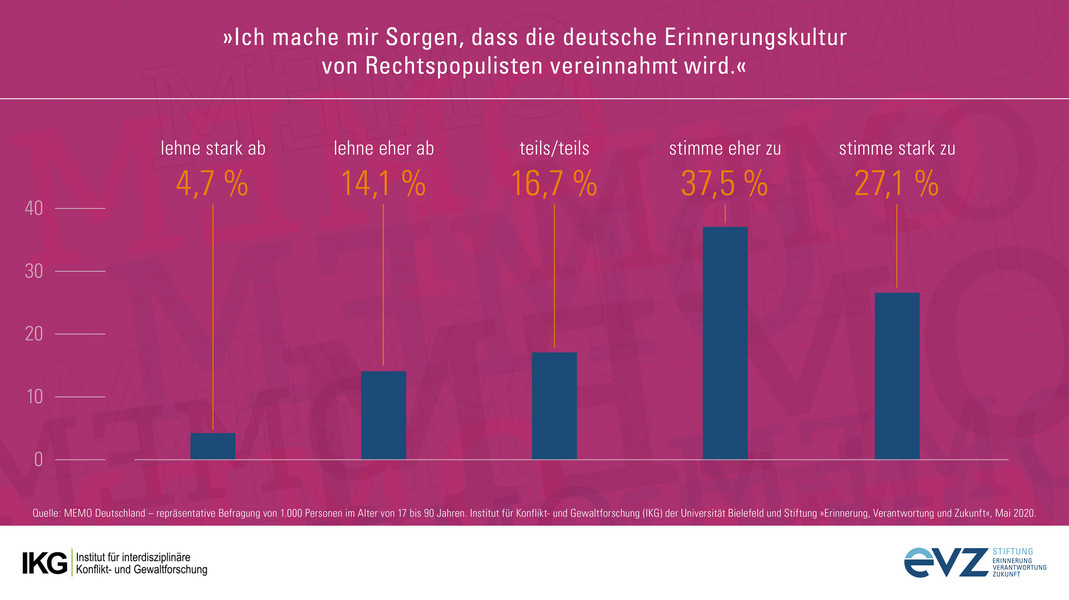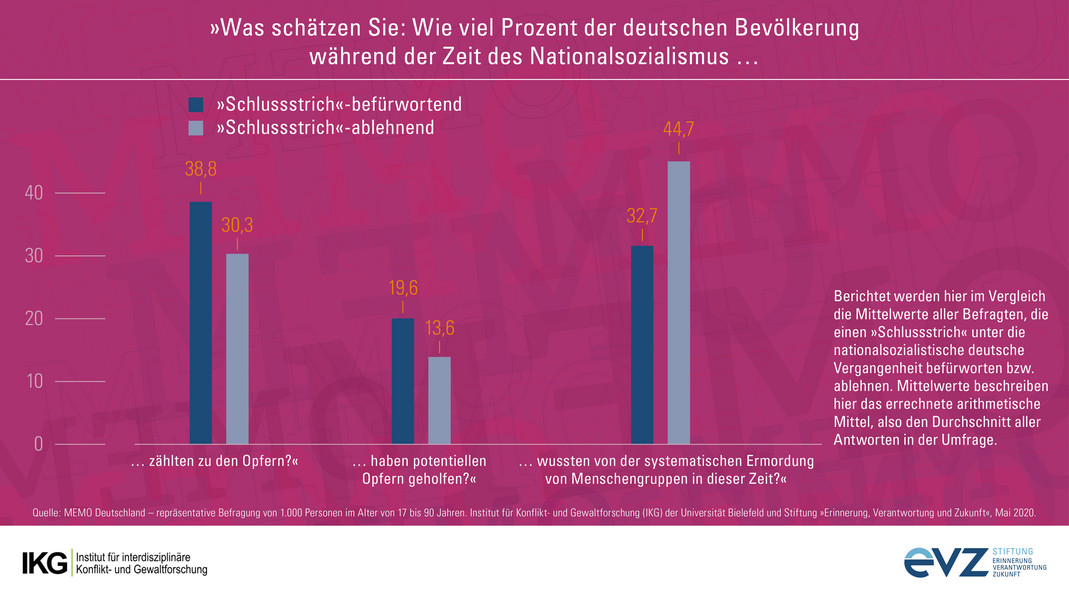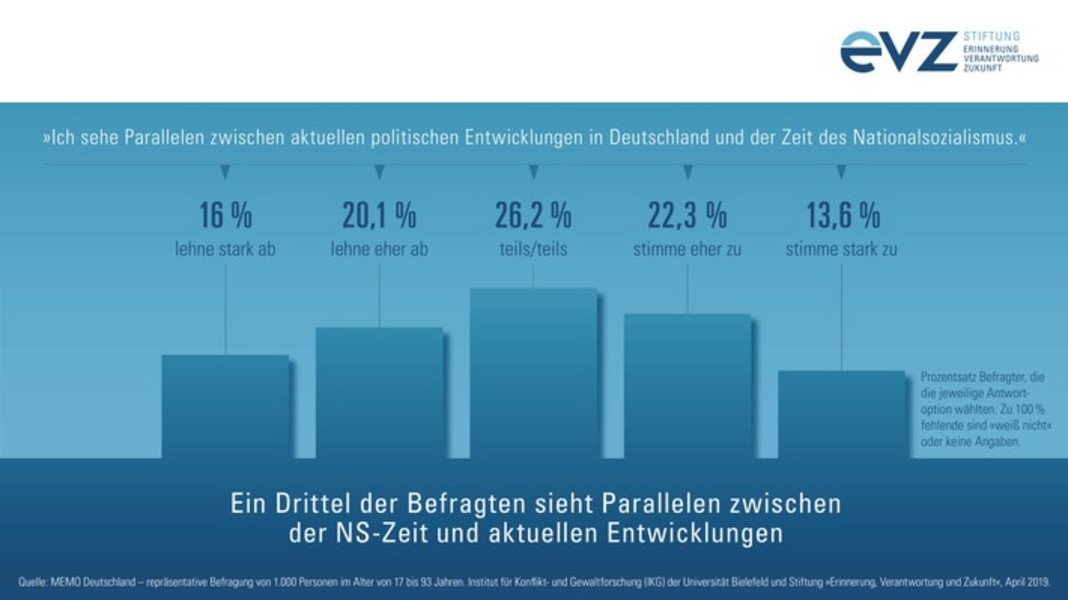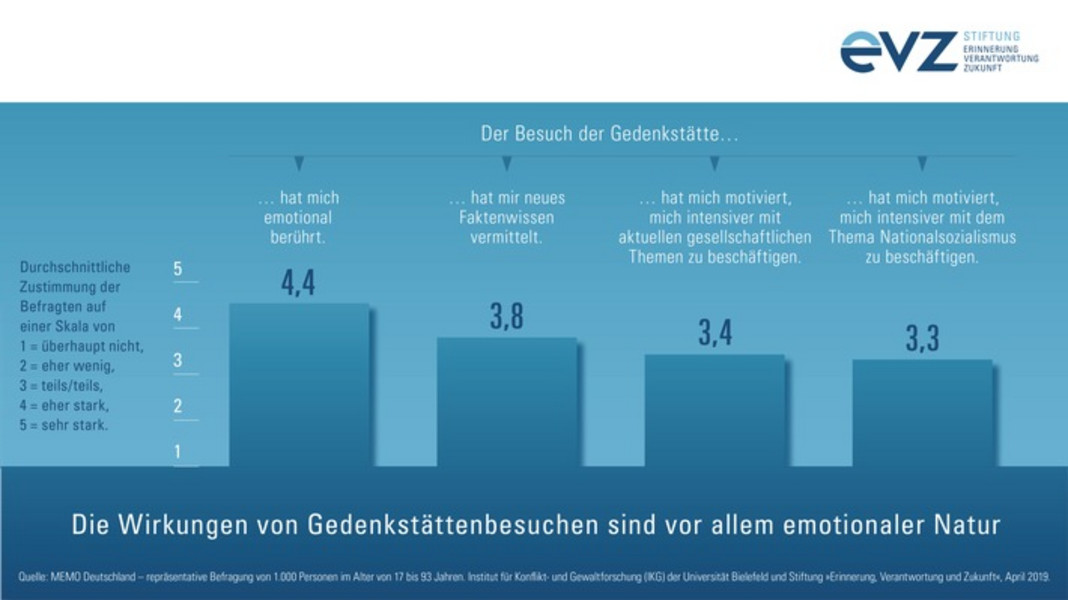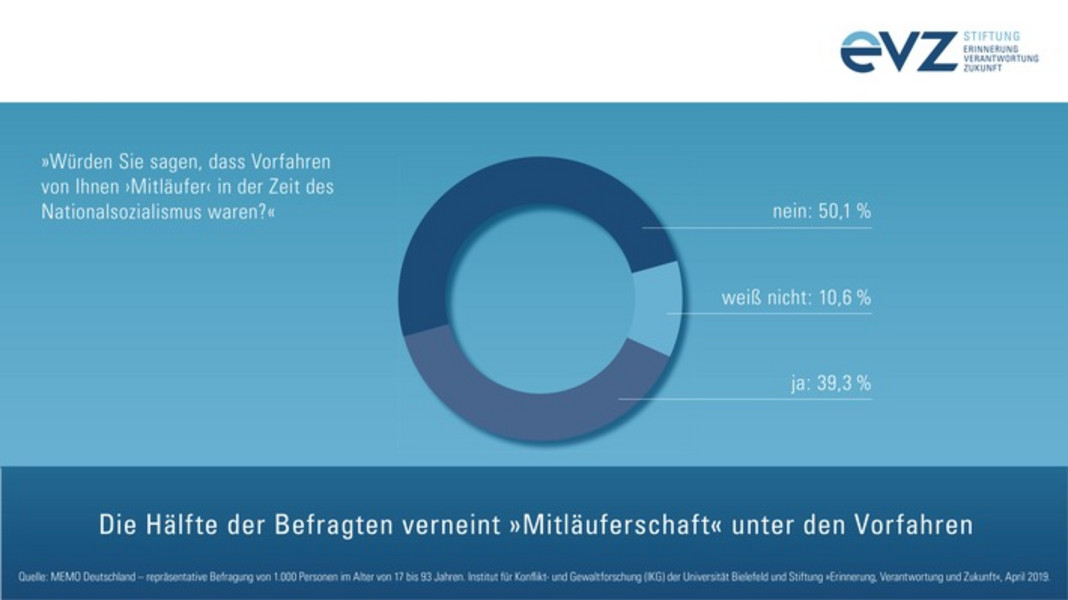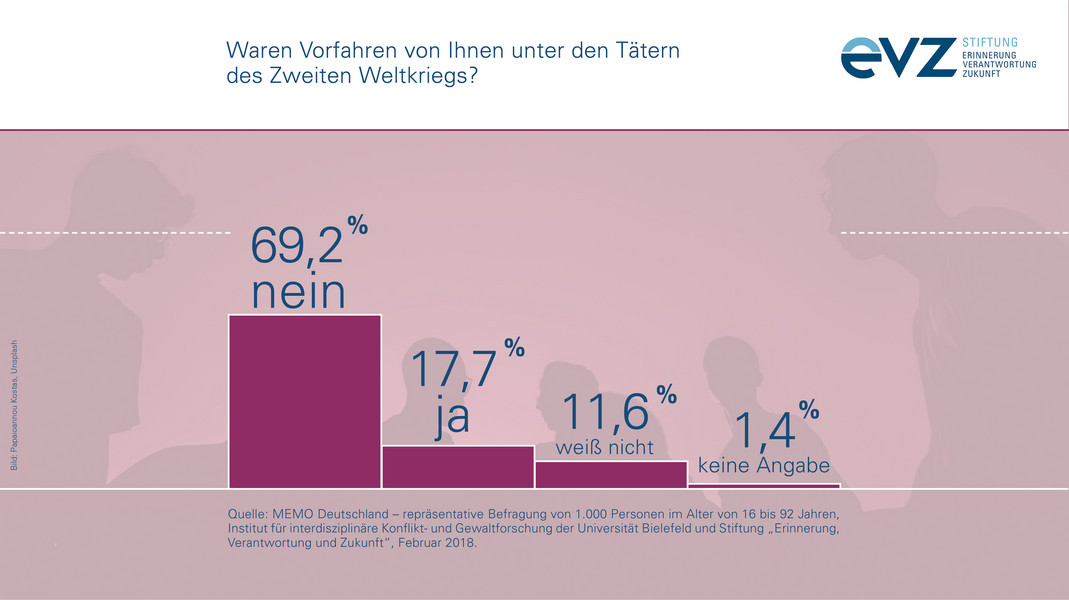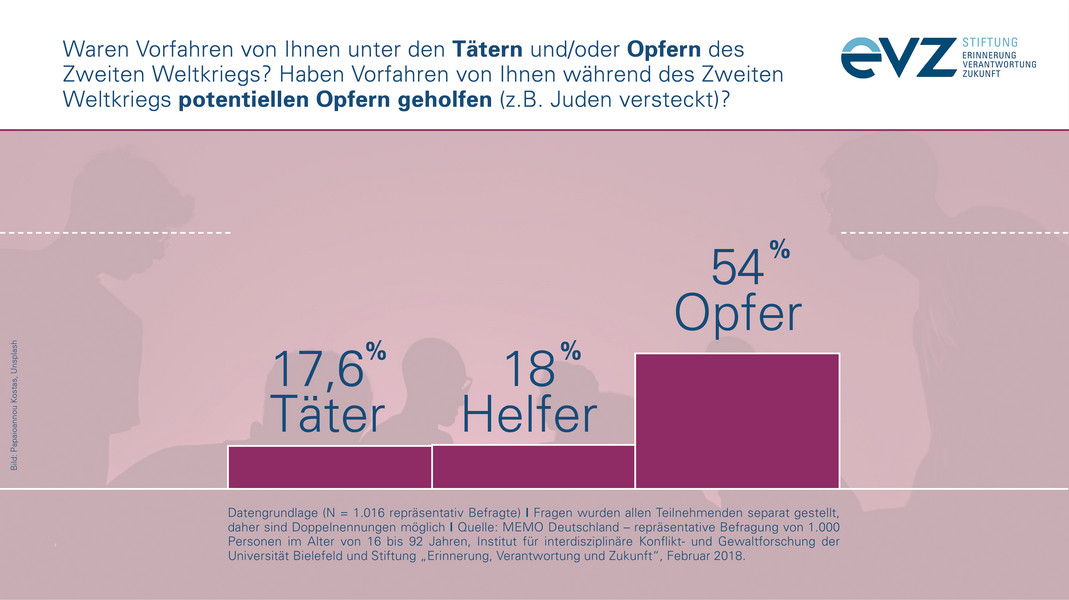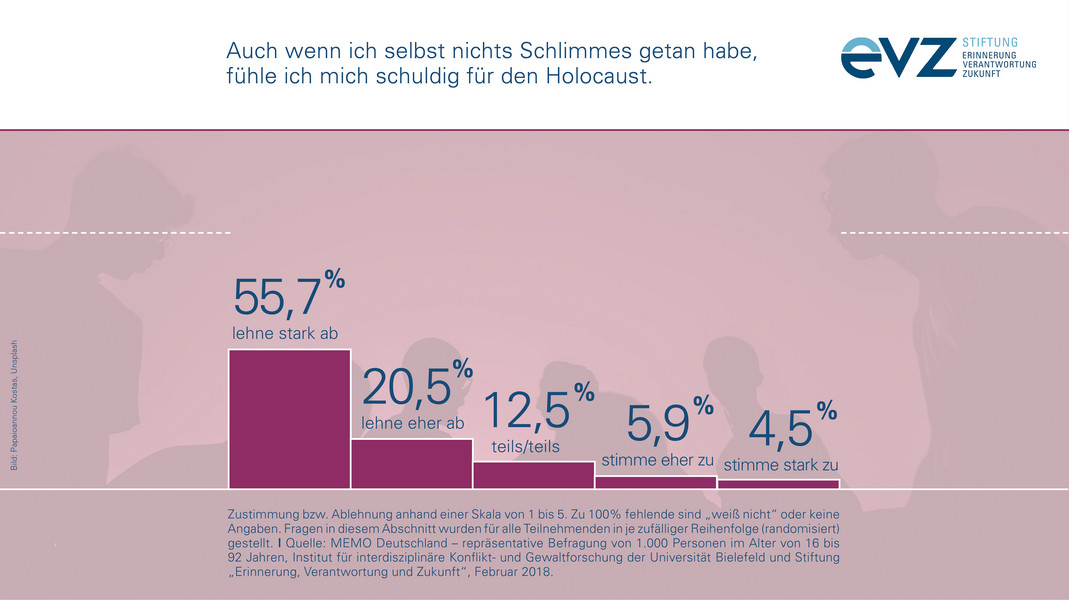STUDY PROJECT PARTNERS
MEMO Germany – MEMO Multidimensional Remembrance Monitor - STUDY V
Germans' memories of World War II are centered on events and places in Western Europe. This is a result of MEMO - the Multidimensional Remembrance Monitor. The fifth study on German culture of remembrance shows that 58.5% of the 1,000 representative respondents have never visited a place of remembrance of World War II and its victims located outside of Germany intentionally. Those who visited a memorial site outside Germa-ny most often refer to France, and there to the warfare and the war graves in Normandy.
Michael Papendick, Jonas Rees, Maren Scholz & Andreas Zick / Institut für interdisziplinäre Konflikt- und Gewaltforschung (IKG) Universität Bielefeld Berlin, Bielefeld 2022 33 Pages Language: German, English




